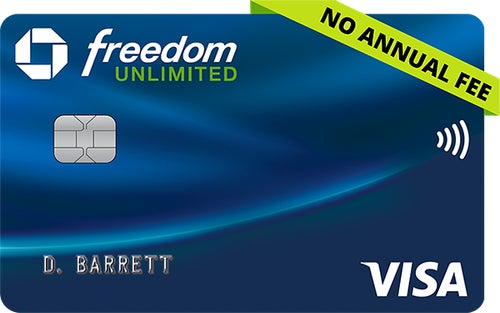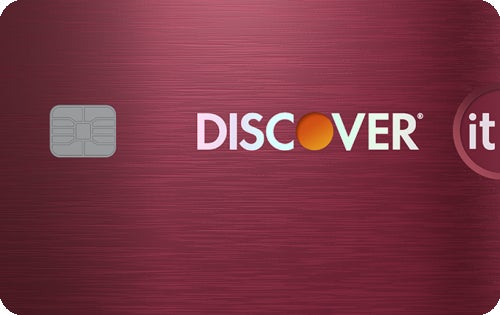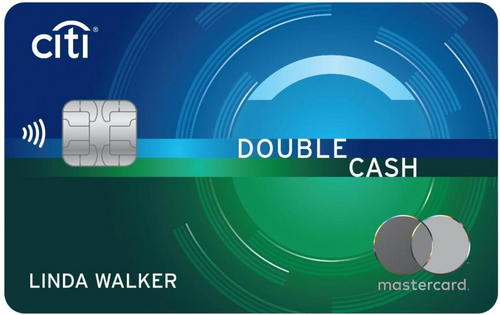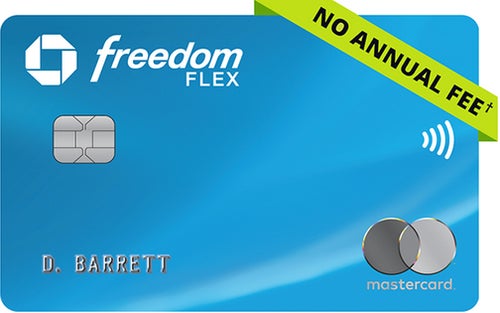| Cash Back Rating: | 4.8 / 5 |
| Rewards Value: | 4.3 |
| Annual Percentage Rate: | 2.0 |
| Rewards Flexibility: | 4.0 |
| Features: | 3.0 |
| Issuer Customer Experience | 4.0 |
In a Nutshell:
The Chase Freedom Flex card’s unique blend of year-round and quarterly-rotating rewards categories should offer great variety. It may be especially appealing to frequent travelers who want to avoid an annual fee or pair it with a premium Chase travel card.
All information about the Chase Freedom Flex has been collected independently by CreditCards.com and has not been reviewed by the issuer.
Rewards Rate
|  |
Sign-up Bonus
|  |
Annual Bonus None |  |
Annual Fee $0 |  |
Average Yearly Rewards Value ($1,325 monthly spend) $532 |  |
APR 18.24% - 27.74% Variable |  |
Pros
Cons
|  |
Chase Customer Service Ratings
|  |
Other Notable Features: Cell phone protection, purchase protection, extended warranty, auto rental insurance, trip cancellation and interruption insurance, bonus cash back on Boxed purchases, Lyft credits, travel accident insurance, free credit score updated weekly, free DashPass membership for 3 months, followed by 50% off next nine months of membership
Chase Freedom Flex overview
Offering a unique cash back program that should excite foodies, frequent travelers and fans of cash back variety alike, the Chase Freedom Flex charges no annual fee and offers cash back in an array of rotating categories.
But unlike its predecessor, the popular (and now-retired) Chase Freedom card, the Freedom Flex also carries bonus cash back in some categories year-round, allowing cardholders to enjoy consistency in a few key spending categories and variety in others throughout the year.
Thanks to its generous rewards rate, the Freedom Flex could be a good fit if you want to earn travel rewards without an annual fee, or are considering adding a premium Chase travel card like the Chase Sapphire Reserve® card to your wallet.
That said, the card’s rotating categories may not always line up with your spending habits. Some larger spending categories like groceries and gas may only pop up for a single quarter each year (if at all), limiting the card’s rewards potential as a standalone option.
Pros
- Flexibility: Earns cash back every day with both rotating categories and year-round cash back in groceries, drugstore purchases and travel
- Versatility: Gets an equal redemption value of 1 cent per point on most options when you redeem for rewards
- Pool points from other Chase Ultimate Rewards cards it maximizes both earning and rewards, especially when other cards can come with boosted point value
- Welcome bonus is very easy to obtain with cardholders having to spend less than $200 per month
- Comes with a generous APR offer on both balance transfer and purchases
Cons
- Balance transfer fee: This card comes with a 3 percent or $5 balance transfer fee, whichever is higher. While this fee is common, it can cut into what you save on interest depending on the balance.
- Hard to maximize: There’s a spending cap on the rotating categories of $1,500. Some categories are hard to take full advantage of such as streaming services.
- Rotating categories may not match your spending that season, leaving you to earn lower rewards on most of your purchases
Why you might want the Chase Freedom Flex
If you get a kick out of strategizing how to maximize your rewards, you’ll love the Freedom Flex. The card offers terrific variety with its rotating bonus categories, encouraging you to plan out purchases and adjust your spending habits to reap big rewards.
Your cash back redemption options are flexible, too, and you can even redeem your earnings for travel through Chase Travel℠ portal without sacrificing rewards value.
If you plan on making any big purchase with your Freedom Flex card, you’ll also appreciate the card’s intro APR offer, which gives you a chance to chip away at large expenses over time or pay off a large debt to minimize interest, but also earn big rewards on new purchases.
Meanwhile, the card’s sign-up bonus should be easy to reach and its Mastercard benefits include some nice travel and purchase protection perks, as well as credits for select food delivery and online shopping services.
Great cash back rates and variety
As its name implies, the Freedom Flex comes with a flexible cash back rewards program that offers a combination of year-round and quarterly rotating bonus categories.
To start, you can enroll in a different bonus category each quarter and earn 5% cash back on up to $1,500 in spending in that category. After you meet the $1,500 quarterly cap, your rewards rate drops to 1% back on purchases in that category.
Chase announces its bonus categories on a quarter-by-quarter basis. The Chase cash back calendar typically offers a good amount of variety, and the 2021 calendar included a mix of practical categories like grocery stores and gas stations, as well as a few more niche options, like select streaming services.
Chase 5% cash back calendar 2023
For Q4 2022, Freedom Flex cardholders can earn bonus cash back on Walmart and PayPal purchases.
| Winter | Spring | Summer | Holiday |
| January – March (Activation closed) | April – June (Activation closed) | July – September (Activation between June 15, 2023 and Sept. 14, 2023) | October – December (Activate open Sept. 15, 2023) |
|
|
| TBD |
Additionally, cardholders earn 5% back on travel booked through the Chase Travel℠ portal, 3% back on dining purchases (including takeout and eligible delivery services) and 3% back on drugstore purchases. These are solid ongoing rewards rates for a card with no annual fee.
If you were to maximize your cash back earnings in every quarterly bonus category by spending $1,500 on eligible purchases, you’d earn a total of $300 cash back in a year. Assuming your spending matches that of the average consumer, you stand to earn an additional $167 per year when you factor in the Freedom Flex card’s year-round bonus categories of travel, dining and drugstore purchases, as well as the 1% cash back you’d earn on general purchases. That’s close to $500 per year in cash back.
Valuable, easy-to-earn sign-up bonus
Along with the rewards you can earn in its bonus spending categories, the Freedom Flex gives you a chance to score a large sign-up bonus in your first year: $200 cash back if you spend $500 with the card in your first three months. Not only is this a great sign-up bonus for a no-annual-fee card but $500 is also a very low spending requirement. To meet the spending requirement in the first three months, you would need to spend only $167 per month, which should easily be doable given the variety of bonus categories offered.
Flexible cash back redemption
The Freedom Flex also offers several different ways to redeem your rewards. Though marketed as a cash back card, the Freedom Flex actually earns flexible Ultimate Rewards points.
You can redeem points for cash back in the form of a statement credit or direct deposit, travel, gift cards, Amazon.com purchases and more. Plus, there’s no limit to how many points you can earn, and your points never expire.
That said, the value of your points varies based on how you redeem them. Here’s a look at the Freedom Flex card’s rewards redemption options and the point value you’ll get with each:
Chase Freedom Flex redemption options
| Redemption option | Point value (cents) |
| Statement credit | 1 |
| Direct deposit | 1 |
| Travel | 1 |
| Gift cards | 1 |
| Apple purchases | 1 |
| Amazon.com purchases | 0.8 |
You can also use the Chase Pay Yourself Back feature to redeem points to pay for some or all of your purchases in select categories and get paid back with a statement credit. You’ll still earn points on these purchases, and your points may be worth more when you redeem in certain categories. For a limited time, Freedom Flex cardholders, for example, can redeem at a value of 1.25 cents per point when they opt to donate to eligible charitable organizations.
Pair your Freedom Flex with another Ultimate Rewards card to maximize rewards
Things get especially interesting when you pair the Freedom Flex card with another card that earns Ultimate Rewards. You can transfer Chase points into a common pool from multiple cards that earn rewards in different categories, allowing you to maximize earnings by using the card that earns the most on a given purchase.
If you have a premium Chase card like the Chase Sapphire Preferred® Card, Sapphire Reserve or Ink Business Preferred® Credit Card, you can get extra value out of the points you earn with the Freedom Flex by redeeming points for travel through Chase Travel℠. The Sapphire Preferred and Ink Business Preferred both offer a boosted value when you redeem for travel this way, and the Sapphire Reserve gives you potentially more in value.
Pairing the Freedom Flex with a premium Chase Ultimate Rewards card would also allow you to transfer points to one of Chase’s airline and hotel transfer partners and possibly enjoy even greater point value.
Finance larger purchases and transfer balances with an intro APR
The Freedom Flex also features an introductory APR on new purchases and balance transfers, which could be a big help if you have a large expense like a home repair looming or need to consolidate some debt without gaining more interest. For balance transfers, you will have to pay a fee of $5 or 3% of the amount of each transfer (whichever is greater) in the first 60 days. Not only can you pay off your balance slowly without racking up interest charges, but you’ll also earn at least 1% back on your new purchases – even more if they line up with one of the card’s rotating 5% cash back categories.
The terms are pretty straightforward: You get a 0% intro APR on purchases and balance transfers for your first 15 months as a card member, after which you’ll be subject to the card’s 18.24% - 27.74% Variable APR, based on your credit score.
Other cardholder perks
Unlike the retired Freedom card, which ran on the Visa card network, the Freedom Flex is a Mastercard credit card. This shift to a Mastercard World Elite product brings many new benefits to the Freedom Flex. The card also features some familiar Chase perks. Highlights include:
- Cell phone protection: Pay your monthly cell phone bill with the card, and any phones listed in your bill are covered up to $800 per claim and $1,000 per year against theft or damage. A $50 deductible per claim applies.
- Complimentary DashPass subscription: DashPass gives you unlimited free deliveries on DoorDash orders over $12. The Freedom Flex offers a free DashPass membership for three months. After that, you’re automatically enrolled at a 50% discount for the next nine months (subscriptions typically cost $9.99 per month), though you can cancel before that if you like.
- Bonus cash back on Boxed purchases: Boxed is a membership-free wholesale retailer that sells groceries, household goods, personal care items and more. The Freedom Flex gets you 5% cash back on all Boxed purchases, which can be used for future Boxed purchases.
- Complimentary ShopRunner membership: ShopRunner gets you two-day shipping and free returns at more than 100 online retailers.
- Purchase protection: For eligible purchases made on your Chase Freedom card, you can be covered against theft or damage for the first 120 days ($500 max per claim, $50,000 max per account).
- Extended warranty: Extend eligible manufacturers’ warranties of three years or less by an additional year.
- Car rental insurance: If you charge your rental car to your card, you can receive secondary coverage in the case of damage or theft up to the car’s cash value.
- Trip cancellation and interruption insurance: In case you have to cancel or cut a trip short due to severe weather, illness or another covered situation, you can be reimbursed for non-refundable purchases.
Why you might want a different card
The Freedom Flex card’s cash back variety and flexible rewards redemption options are great. Still, if adjusting your spending habits to maximize rewards sounds like more of a headache than it’s worth, the Freedom Flex may not be the right card for you. And since you won’t have any choice in Chase’s quarterly categories and won’t know them too far in advance, you may struggle to plan out your spending to maximize rewards.
Quarterly categories can be hard to maximize
Depending on what’s included in the quarterly bonus category, it may be tough to reach the Freedom Flex card’s 5% cash back spending cap of $1,500. For example, most cardholders would struggle to spend $1,500 on select streaming services or gas station purchases in three months. If that winds up being the case, you’ll be stuck with a great rewards rate on purchases you don’t make often for three months, severely limiting the card’s cash back potential and overall appeal.
The card’s $1,500 quarterly spending cap may also hold you back in other categories, such as grocery store purchases. In this category, you may exceed the $1,500 quarterly spending limit, at which point you’ll be limited to earning just 1% back on those purchases. If you were to opt instead for a card that offers a slightly lower – but consistent – cash back rate, you may earn more over the course of a year than you would with the Freedom Flex.
For cardholders who would rather earn simple, consistent rewards, having to plan out spending ahead of time-based on an ever-changing cash back calendar may be a deal-breaker. In that case, a card that sticks to bonus cash back in specific spending categories relevant to you or a flat-rate cash back card may be a better fit.
Strict approval odds
If you apply for the Freedom Flex, you’ll need good to excellent credit (above 670) to qualify. That could put a damper on your plan if you have fair or average credit and are looking for a card that earns rewards in a variety of popular categories.
You’ll also have to keep in mind the Chase 5/24 rule: If you’ve opened five or more credit card accounts with any issuer within the last 24 months, you most likely won’t be approved for a card with Chase.
Tip: If you want a better sense of your odds of approval before you apply, you can take advantage of Chase prequalification tools on the Chase website with no impact to your credit score.
How does the Chase Freedom Flex compare to other cash back cards?
The Freedom Flex offers a ton of variety in how you earn cash back, but the card’s 5% cash back categories may not always line up with your spending habits. Here are a few alternatives worth considering:
 |  |  |
Rewards rate
| Rewards rate
| Rewards rate
|
| Welcome bonus | Welcome bonus | Welcome bonus |
| Annual fee $0 | Annual fee $0 | Annual fee $0 |
Other things to know
| Other things to know
| Other things to know
|
Chase Freedom Flex vs. Chase Freedom Unlimited
If you’d rather earn more on general purchases than track and enroll in rotating bonus categories, the Freedom Unlimited is a great option. It offers the same year-round bonus cash back categories (5% back on travel, 3% back on dining and 3% back on drugstore purchases) as the Freedom Flex, as well as 1.5% cash back on general purchases. The card also pairs with premium Ultimate Rewards cards in the same way as the Freedom Flex, so it makes sense for fans of travel rewards. Currently, the Freedom Unlimited card’s Welcome Offer sign-up bonus is a $200 Bonus after you spend $500 on purchases in your first 3 months from account opening.
Chase Freedom Flex vs. Discover it® Cash Back
Like the Chase Freedom Flex, the Discover it® Cash Back offers 5% cash back in rotating bonus categories that you must enroll in each quarter (on up to $1,500 in purchases per quarter, then 1% cash back). It also offers 1% cash back on general purchases. While the card lacks the year-round bonus categories available on the Freedom Flex, it comes with a unique introductory bonus: Discover will match all the cash back you earn at the end of your first cardmember year.
Chase Freedom Flex vs. Citi Double Cash® Card
If you want to keep things ultra-simple and earn cash back at the same rate on every purchase, no matter what you buy, the Citi Double Cash Card is one of the best flat-rate cash back cards on the market. You’ll earn up to 2% cash back on everything you buy (1% back when you make a purchase and an additional 1% back as you pay for those purchases). You can also redeem your rewards as ThankYou points in the Citi ThankYou Travel Center for airfare.
How to use the Chase Freedom Flex:
- Take advantage of the card introductory APR on purchases and balance transfers to pay off large expenses over time or consolidate any large debt while avoiding interest charges.
- Enroll in a bonus category each quarter to earn the full 5% cash back on your first $1,500 in spending.
- Time your purchases strategically to max out the spend cap in bonus cash back categories each quarter.
- Check out other ways to earn Ultimate Rewards points – like referring a friend to the card or shopping through the Chase Travel℠ portal.
- Pair the Freedom Flex with another Ultimate Rewards card and redeem points for travel.
Is the Chase Freedom Flex right for you?
The Chase Freedom Flex charges no annual fee and offers a ton of variety in how you can earn and redeem rewards, making it a great all-purpose rewards card that will hold extra value for budding travelers.
Earning rewards does require some strategizing on your part, though, so if that sounds like more trouble than it’s worth, you may be happier sacrificing some rewards potential in favor of consistent, predictable returns.
About the author
All reviews are prepared by CreditCards.com staff. Opinions expressed therein are solely those of the reviewer and have not been reviewed or approved by any advertiser. The information, including card rates and fees, presented in the review is accurate as of the date of the review. Check the data at the top of this page and the bank’s website for the most current information.
Responses to comments in the discussion section below are not provided, reviewed, approved, endorsed or commissioned by our financial partners. It is not our partner’s responsibility to ensure all posts or questions are answered.
